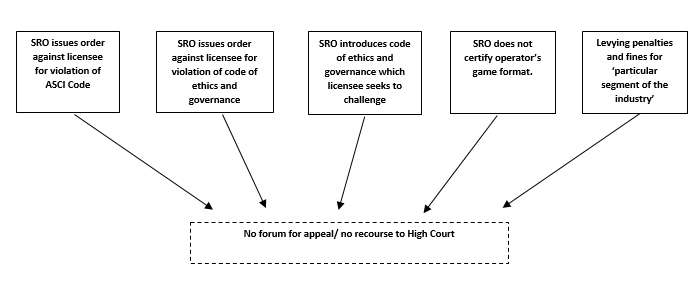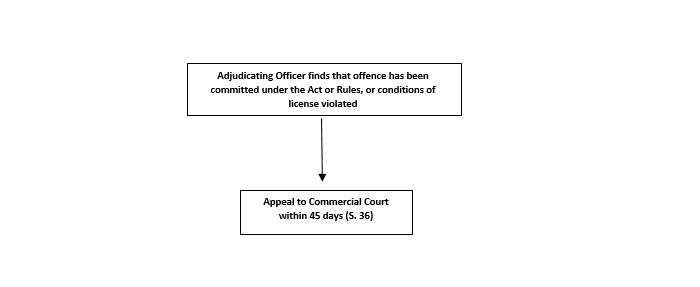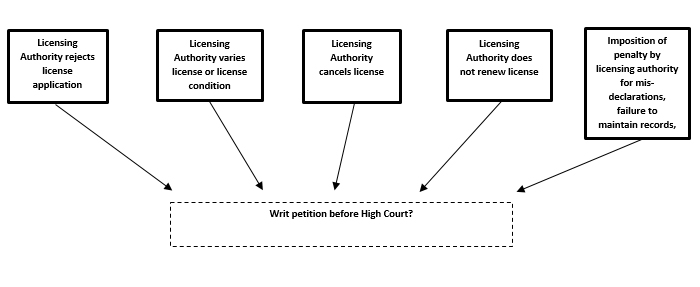| |
Annexure A: License Provisions
-
Licensing Authority, and Application process
-
Licensing Authority: The Draft Bill provides for the constitution of a licensing authority (not below the rank of an additional secretary) to be in charge of licensing Virtual Online Sports formats, and will evaluate applications for license, issue and renew licenses1.
-
Procedure for License Application:
-
Any person seeking a license is required to make an application to the licensing authority2. The form and manner of making the application is likely to be prescribed in the rules framed under the Act introduced pursuant to the Draft Bill.
-
The licensing authority is required to grant/refuse the license within 30 days. If the order of grant/refusal is not passed within 30 days, the application will be deemed to be approved3.
-
In case of refusal, the licensing authority must put forth a brief statement for reasons for refusal. In case of refusal to grant a license, the licensee must be given a reasonable opportunity to present its case in writing, or by an oral hearing4.
-
Eligibility for License
-
Only Indian citizens or legal entities incorporated in India are eligible for a license5.
-
In case of all Virtual Online Sports, the format must be approved by the court or a self-regulatory organization recognized under the Draft Bill6.
-
In case of E-Sports, the simulated version of the E-sport must be recognized by both domestic and international accredited Sporting Federation7.
-
Validity of License
-
Licenses are valid for 10 years, unless cancelled or surrendered8
-
The licensing authority may renew licenses subject to payment of fees and fulfillment of conditions as may be prescribed9.
-
License Conditions
-
The license terms and conditions have not been prescribed by the Draft Bill and will likely be prescribed in due course10.
-
The Licensing Authority may vary or cancel any condition specified in the license11. In case such variation may have a detrimental effect of a licensee, they will be provided with an opportunity of being heard12.
-
Transfer of License
-
Upon application by a licensee, the licensing authority may transfer the license to another person13.
-
The terms and conditions upon which the license may be transferred are likely to be prescribed by rules framed under the Act14.
-
Maintenance of records by Licensee
-
Licensees are required to maintain a record of transactions for a period of five years from the date of the transaction15.
-
The Licensing Authority may require any licensee to produce documents or information which it may consider necessary for the purposes of the Act16.
-
In case of confidential or sensitive documents or information (such as financial statements, investigation of serious fraud offence, etc.), the licensing authority may issue an order seeking production of the information in a sealed envelope17. The Draft Bill prescribes that the licensing authority will maintain confidentiality of such documents/information18.
Annexure B
Scenario 1: Disputes between users, and between users and licensees

Scenario 2: Orders passed by SRO

Scenario 3: Offences under the Act, Rules, and violation of license conditions

Scenario 4: Orders from Licensing Authority

|

